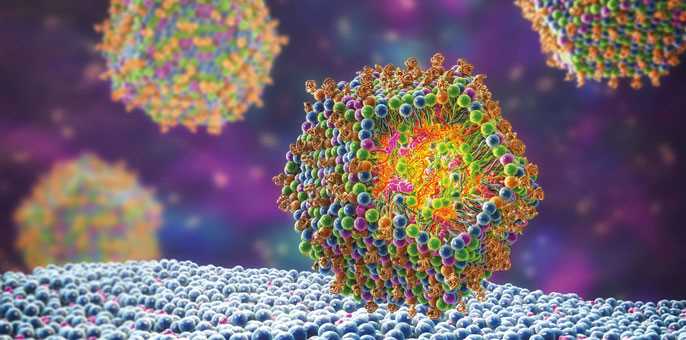We pursue a modality-agnostic approach to ensure our solutions are versatile and effective across a wide range of therapeutic modalities. Every modality has its advantages and challenges. Integrating multiple modalities enables flexibility in tailoring solutions to your specific challenges in disease biology.

In 2024, the US Food and Drug Administration (FDA) approved 50 new drugs. While novel modalities, particularly antibody-based, have been gaining ground, small molecules (SMOLs) still represent the majority, averaging 64.6% since 2019. Due to their intrinsic advantages – including oral delivery options, membrane penetration, complexity of synthesis and ease of scale-up – SMOLs are often more robust and cost-effective treatment options.
Our scientists bring extensive experience in discovering SMOL hits and successfully advancing them to the clinic. By partnering with us, you gain access to various SMOL libraries, including our industry-leading compound collection of over 3 million high-quality SMOLs. Built on legacy collections of major pharmaceutical companies, our SMOL libraries offer access to a diverse and novel chemical space, with 80% unique structures not found in other commercial libraries. Each compound is supported by data in our Life Science Database (LSDB), containing approximately 1 billion data points, enabling fast decision-making during hit selection. This database provides our partners with a unique opportunity to leverage historical data to accelerate their efforts with AI-driven drug discovery support from our digital team.
Our comprehensive protein degradation solutions cover the entire proteolysis targeting chimera (PROTAC®) and molecular glue drug discovery process, utilising cutting-edge technologies and spanning both chemistry and biology to meet your innovative drug discovery and development goals. We offer:
Antibody-drug conjugates (ADCs) combine the targeting accuracy of antibodies with the powerful effects of highly potent small molecules. Despite a limited number of approvals, this class of drugs attracts considerable research, development and financial support. ADCs are extending the concept of "armed antibodies" in oncology across various cancers, including breast cancer and lymphomas, offering a way to minimise off-target toxicity in contrast to conventional chemotherapy. We offer:
Cell and gene therapy represents a revolutionary leap forward in the development of next-generation drugs. These innovative therapies hold the promise of treating, and even potentially curing, a wide range of diseases by targeting their underlying genetic causes. We are committed to advancing the field of cell and gene therapy through our cutting-edge gene-delivery characterisation platform. Our comprehensive approach helps ensure that we can effectively develop and optimise oligonucleotide-based therapies, addressing critical aspects of their delivery and efficacy.
Our platform provides detailed insights into various crucial parameters, including delivery mechanisms, biodistribution patterns, tissue-targeting and gene-editing efficacy, immune response dynamics and tolerability. Nuvisan offers a suite of specialised services to support the development of nucleic acid therapeutics, including:
Our platform offers comprehensive evaluation of therapeutic uptake and delivery. We quantify fluorophore-labelled RNA/DNA to assess uptake efficiency and utilise fluorescent Gal9 reporter assays for precise assessment of endosomal escape. Additionally, we evaluate GFP expression from delivered RNA using a versatile assay system that can be adapted to various readouts and cell lines or tissues, including iPSC-derived models.
Enhance your assay with cutting-edge readouts such as next-generation sequencing and single-cell sequencing. Our in vivo platform includes robust biodistribution and efficacy assessments, utilising advanced reporter systems and ex vivo analyses. These include bioluminescence imaging, fluorescence imaging and various oncology models, along with single-cell sequencing, target mRNA quantification, protein expression, RNA in situ hybridisation, flow cytometry analysis and immunohistochemistry assessment. We help ensure the safety and effectiveness of your therapeutics through comprehensive tolerability assessments, including cytokine profiling, liver enzyme profiling and complement activation.

Explore our flyer about pharmacology models for nucleic acid therapeutics.
download